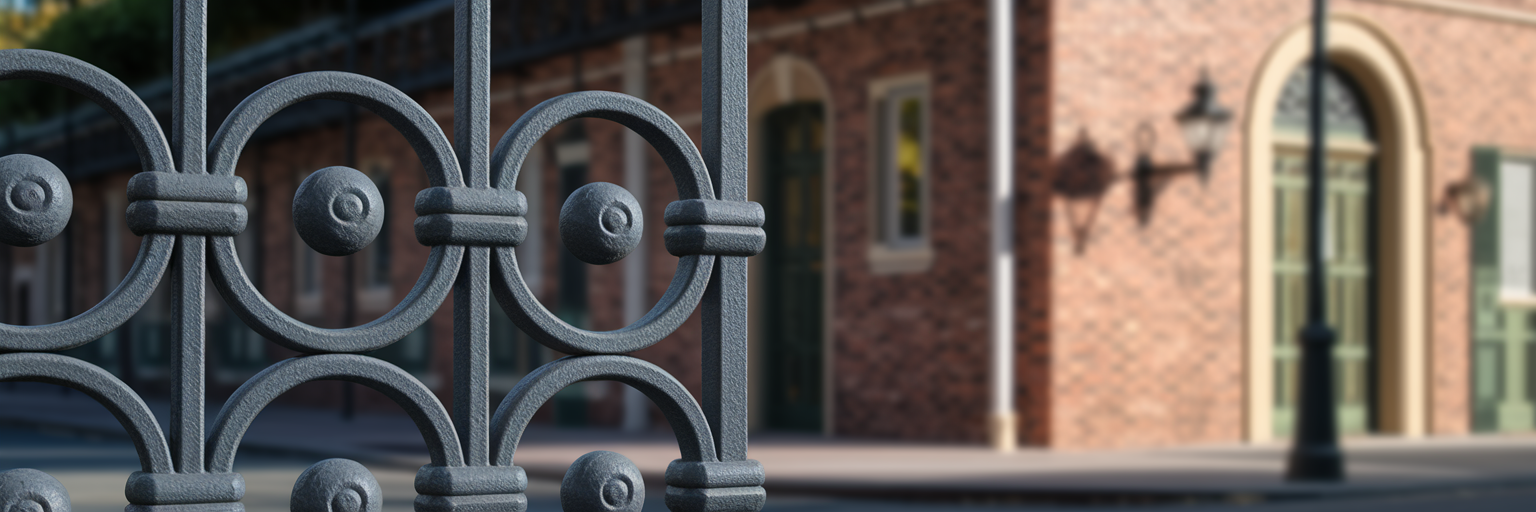Your Guide to Notarizing Historic New Orleans Property Deeds

The Unique Challenge of Historic Property Transactions
Owning a piece of New Orleans history, whether it's a grand home in the Garden District or a colorful shotgun in Mid-City, is a unique aspiration. These properties are more than just structures; they are tangible links to the city's cultural fabric, holding stories within their wrought-iron balconies and cypress wood floors. However, the dream of ownership comes with practical realities. The process to notarize a historic property in New Orleans is far more intricate than a standard real estate transaction. It involves a distinct set of legal requirements and preservation rules that can feel overwhelming. This guide is designed to bring clarity to that process, helping you navigate the transfer of a historic deed with confidence this Autumn 2025 and ensure your piece of history is secured on solid legal ground.
Navigating New Orleans' Distinct Legal Framework

Before diving into property-specific rules, it’s essential to understand the legal stage on which these transactions play out. Louisiana operates under a civil law tradition, a heritage from its French and Spanish past that sets it apart from the other 49 states. In this system, a notary’s role is significantly elevated. A Louisiana notary is not merely a witness to a signature but a public official who drafts and executes the Act of Sale, the binding legal document that transfers ownership. This is a profound difference from common law states, where attorneys typically handle closings.
Every property transaction in the city must be officially recorded to be legally effective against the public. The central hub for this is the Orleans Parish Civil Clerk of Court's Land Records Division. As the Clerk of Court's office explains, this division now consolidates the functions of the former Recorder of Mortgages and Register of Conveyances, creating a single repository for all property documents. For anyone involved in a historic home deed transfer in LA, this office is the final destination for the executed deed.
Furthermore, the Clerk's Office houses the Notarial Archives, a treasure trove of records dating back to the 1730s. This archive is an indispensable resource for researching the lineage of historic properties, helping to uncover previous owners, boundary lines, and old servitudes that might still affect the property today.
Special Considerations for Historic Deeds
Moving from the general legal system to the property itself, historic homes come with their own set of rules that must be addressed before a deed can be finalized. A failure to investigate these details can lead to significant legal and financial complications down the road. When preparing to buy or sell, you and your notary must meticulously examine several key factors.
- Preservation Easements and Servitudes: Many historic properties are subject to servitudes, which are legal restrictions tied directly to the deed. These agreements dictate what can and cannot be altered on the property to protect its historical character. They are permanent and transfer with the sale, so a buyer must understand exactly what they are agreeing to.
- Local Preservation Bodies: New Orleans has powerful commissions tasked with safeguarding its architectural heritage, most notably the Vieux Carré Commission (VCC) for the French Quarter and the Historic District Landmarks Commission (HDLC) for other designated districts. Any sale may require their acknowledgment or approval, and their regulations must be referenced in the Act of Sale.
- Meticulous Chain of Title Search: While important for any property, a chain of title search is absolutely critical for historic homes. Centuries-old properties can have complex, fragmented, or unclear ownership histories. A thorough search ensures the seller has the undisputed right to sell the property, preventing future claims from clouding your ownership.
- Accurate Property Descriptions: Deeds for older properties often contain descriptions that go beyond modern lot-and-block numbers. They might reference old street names, long-gone landmarks, or measurements in archaic units. A skilled notary must verify and translate these into a legally sound description that leaves no room for ambiguity.
The Deed Notarization and Recording Process

Once you have a clear picture of the property's history and restrictions, the actual transaction can proceed. The notarization and recording process for a historic home follows a precise sequence, with each step building on the last. A knowledgeable New Orleans real estate notary ensures this process is executed flawlessly.
- Gathering Documentation: Before the signing, all necessary paperwork must be assembled. This includes the signed purchase agreement, any letters of approval from the VCC or HDLC, a copy of the prior deed, the title search results, and valid government-issued photo IDs for the buyer, seller, and all witnesses.
- Drafting the 'Act of Sale': The notary then drafts the official deed. This document does more than state the price; it meticulously incorporates the full legal description, the conditions of the sale, and explicit acknowledgment of any preservation servitudes or historic district restrictions. The scope of the services we provide ensures every detail is correctly documented.
- The Signing Ceremony: Under Louisiana law, the Act of Sale must be signed by the buyer, seller, two competent witnesses, and the notary. While all parties must appear before the notary to sign, they do not necessarily have to be in the same room at the same time, offering some flexibility.
- Recordation: This is the final, non-negotiable step. The notary takes the fully executed Act of Sale and files it with the Orleans Parish Land Records Division. It is only at this moment of recording that the sale becomes legally binding against third parties. Until then, your ownership is not fully protected.
Choosing the Right Notary for Your Historic Property
The success of your historic property transaction hinges on the professional you choose to handle it. While several options exist, they offer vastly different levels of expertise and security. We can all picture that moment of anxiety when signing a stack of legal papers, hoping everything is in order. For a transaction this significant, hope is not a strategy.
| Provider | Expertise Level | Typical Cost | Key Consideration |
|---|---|---|---|
| Real Estate Attorney | Very High | Highest | Offers legal advice but is the most expensive option. |
| Mail/Copy Shop Notary | Low | Lowest | Lacks specialized knowledge for complex historic deeds; high risk of errors. |
| JP Notary | High (Law Degree) | Moderate | Combines deep legal knowledge with specialized notary experience at a competitive price. |
This table illustrates the trade-offs between cost and expertise. For a high-stakes transaction like a historic home, specialized knowledge is critical to avoid future legal issues.
Using a non-specialist, like a notary at a mail shop, is a significant risk. They are trained to witness signatures, not to understand the complexities of preservation servitudes or HDLC requirements. An overlooked detail can result in a defective title, future legal battles, or fines from preservation commissions. While a real estate attorney offers deep expertise, their services come at the highest cost.
JP Notary New Orleans offers a balanced and superior solution. With a law degree and over seven years of dedicated notary experience, we provide attorney-level knowledge without the corresponding price tag. We understand the nuances of historic deeds and offer the convenience of mobile notary services throughout New Orleans, Metairie, Kenner, and Harahan. For a consultation on your historic property transaction, you can reach JP Notary at 504-513-7333 or find more information at www.jpnotary.com.
Final Steps for a Seamless Closing

With the right professional partner, the final steps of your closing can be smooth and secure. The most important piece of advice is to start the process early. The additional research, title work, and commission approvals required for historic homes naturally extend the closing timeline. Rushing can lead to costly mistakes.
Partnering with an experienced professional who understands the local market, from the historic streets of Uptown to the quiet neighborhoods of Old Jefferson and River Ridge, is invaluable. A qualified New Orleans real estate notary ensures every document for your historic home deed transfer in LA is prepared with precision. For those seeking Uptown New Orleans notary services or assistance elsewhere in the metro area, the convenience of the mobile services we offer brings expertise directly to your door.
Transferring ownership of a historic New Orleans property is more than a transaction; it is an act of stewardship. Working with a trusted expert like JP Notary provides the confidence that this meaningful investment is handled with the care and legal diligence it deserves. Have questions about notarization? Check our FAQ.
Need Professional Notary Services?
Contact JP Notary for reliable, professional notary services in New Orleans.
